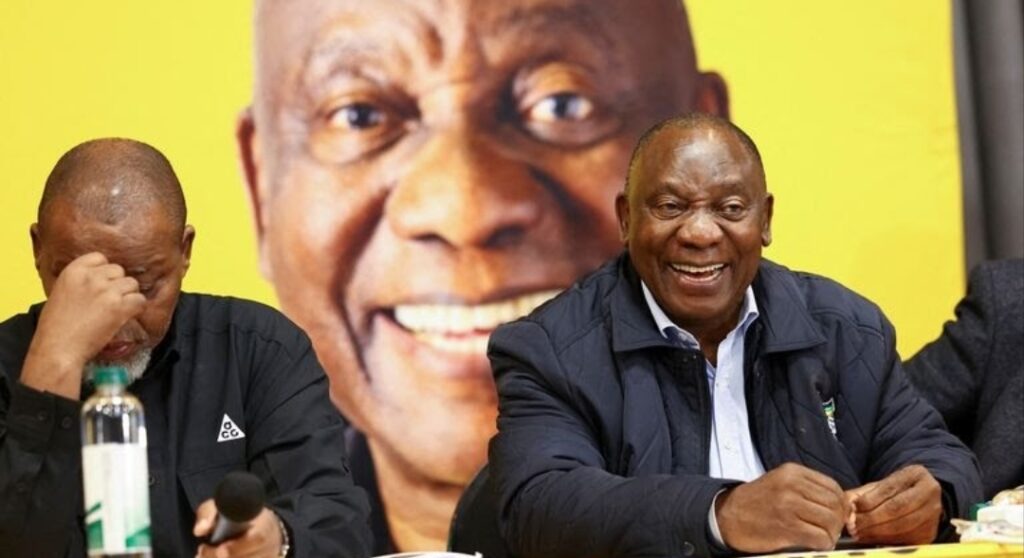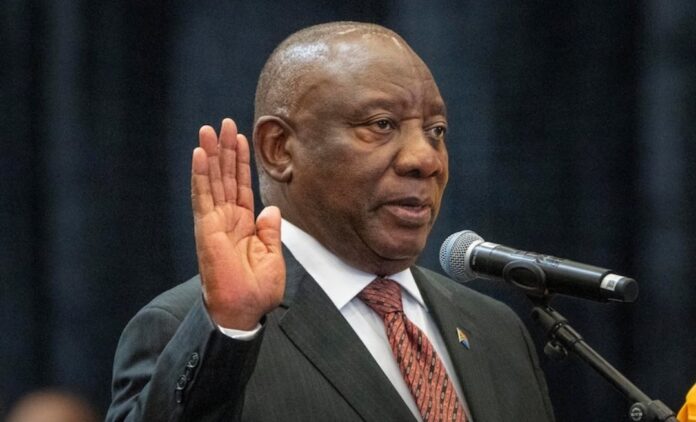Ramaphosa won the re-election bid after his party, ANC agreed to enter into a government of national unity with other parties
By Kehinde Okeowo
Cyril Ramaphosa has been re-elected for a second five-year term as president of South Africa.
He won his re-election bid late on Friday, hours after his party, the African National Congress (ANC) struck a late coalition deal and formed a unity government with the centre-right Democratic Alliance (DA), a former political foe, and smaller parties.

Ramaphosa after the coalition won the vote against the leader of the Economic Freedom Fighters (EFF), Julius Malema, gathering 283 votes against Malema’s 44.
This makes it the first time the otherwise widely divided parties would agree on something and the first time ANC would need a collaboration since 1994 when apartheid gave way to democracy in the country.
Prior to this development, the ANC lost its controlling majority in last May’s parliamentary election after ruling for 30 years since the end of apartheid.
It won just 40% of the vote, forcing Nelson Mandela’s legacy liberation movement to negotiate a power-sharing agreement with rival parties.
ALSO READ: President Tinubu receives FBI director, Christopher Wray in Abuja
In a speech to members of the parliament, 71-year-old Ramaphosa said he was “humbled and honoured” to be elected again as president, which was a “big responsibility”.
“This is what we shall do and this is what I am committed to achieve as the president,” he added.
The ANC’s main reservation about joining forces with the pro-business DA had been that while the party is liked by investors because of its free-market policies, it is unpopular with its own voters who see it as a defender of the privileged white minority’s interests.
The ruling party has, however, over the last decade seen its support dwindle amid widespread poverty, a stagnating economy, rising unemployment, and power and water shortages.
The poverty disproportionately affects black people, who make up 80% of the population and have been the core of the ANC’s support for years.





